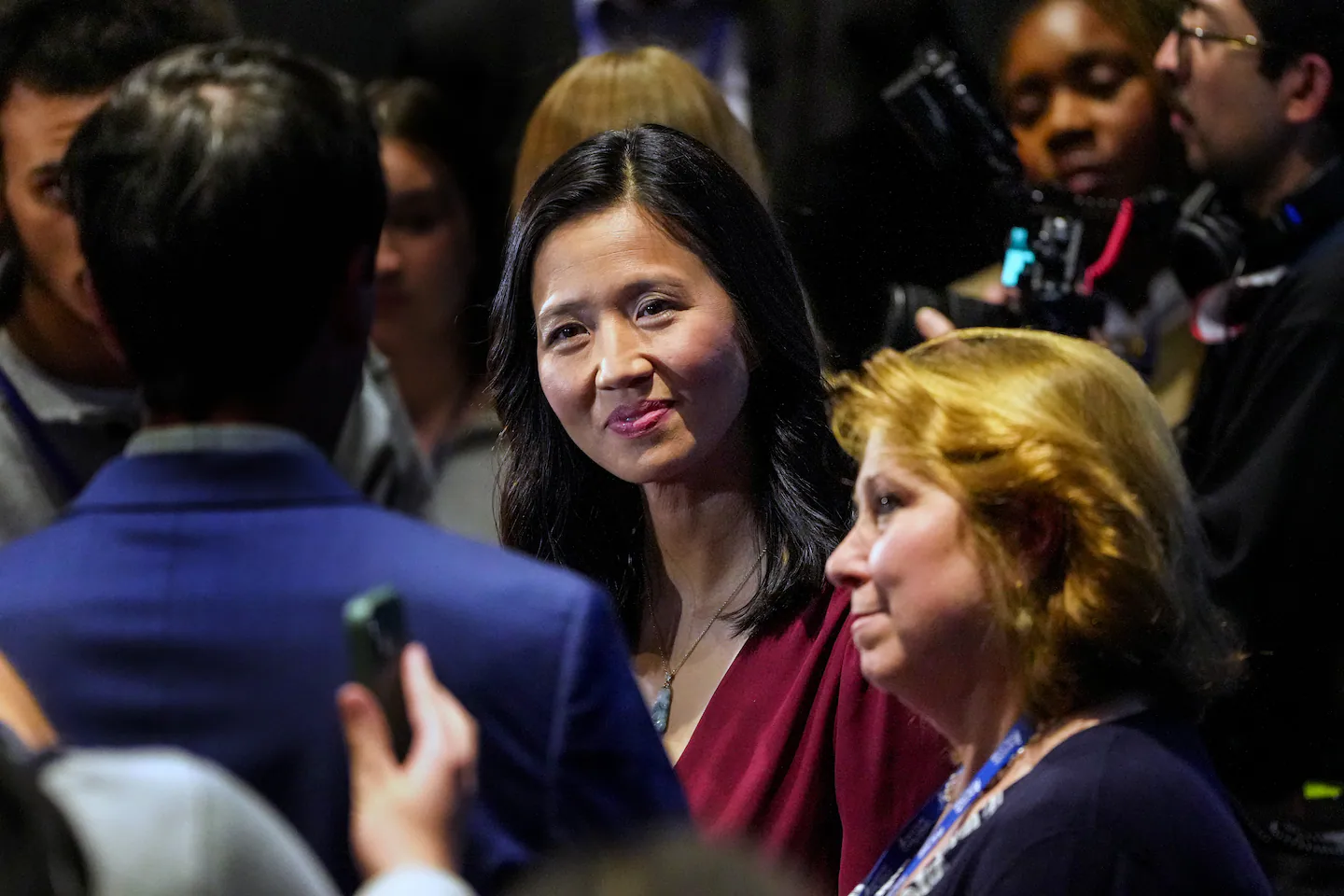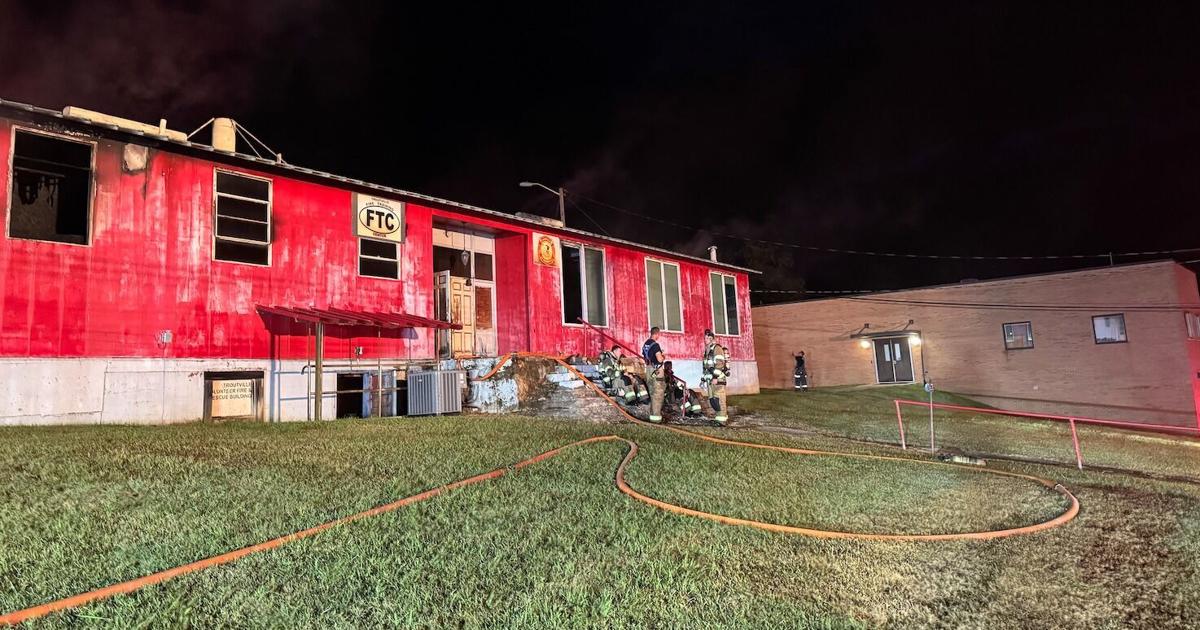Copyright The Boston Globe

Another problem looming from outside: a presidential administration threatening sweeping cuts to school funding. Critics lauded Wu’s ambitions. The mayor noted that under Superintendent Mary Skipper, the Boston public schools are improving, and now outperform 10 of its comparable peer districts. She outlined other progress, too: a long-term facilities plan to adjust for declining enrollment; reductions in chronic absenteeism; gains on some statewide testing scores; expansion of prekindergarten programming; and new bilingual education programs. Meanwhile, an improvement plan that BPS brokered with the state in lieu of receivership ended in June, but officials have committed to fulfilling its goals, including improving bus service and programs for English learners and students with disabilities. “Our families can’t wait around for our schools to catch up. We feel, every day, how fast our future grows up,” Wu said Tuesday. “We are the oldest public school system in the nation. And together, it’s time that we make it the best.” But to do so, observers said that Wu, who took office as mayor in 2021, needs to lay out concrete steps to resolve the schools’ longstanding challenges. “Boston can’t close opportunity gaps while closing the door on voices of parents and advocates,” said Edith Bazile, chairperson of Boston Public Schools’ Special Education Parent Advisory Council. “The mayor’s promises sound inspiring, but four years later, too many of Boston’s children are waiting for those promises to reach them.” Boston is among the most diverse public school districts in Massachusetts, where more than one-third of its 48,000 students are learning English, and about 70 percent are low-income, according to state data. Wu in her speech asked business, philanthropic, and civic groups in Boston to help the schools improve learning. Wu announced new initiatives like starting advanced math clubs in schools and creating more afterschool programs. Greg Maynard, executive director of the Boston Policy Institute, said Wu didn’t offer enough specifics. “There were no metrics or plan offered for what Boston needs to do to become the country’s ‘Best Public School District,’ “ Maynard said. In her speech, Wu said the district has launched 16 new bilingual programs, but observers said BPS has not put in enough resources to educate the large number of English learners. “We want to see more of the urgency she spoke about — especially when it comes to bilingual education,” said Ari Branz, director of organizing at St. Stephen’s Youth Programs, who supports Wu’s goal but wanted more detail. John Mudd, a former member of the School Committee’s task force on English language learners, said BPS must focus on helping those students succeed. “How can we become the best in the nation if we won’t honestly address the needs of our multilingual learners and look at the evidence of what they need, and what is failing them?” Mudd said. To be sure, Wu received a standing ovation from an audience of students, educators, and community members during her remarks. Leaders of the Boston Teachers Union, which brokered a new contract with BPS earlier this year, were among those who hailed Wu’s speech. In a statement, they said Wu’s plan reflects shared values of “equity, inclusion, and investment” in Boston’s public schools and communities. “We are happy that Mayor Wu is putting our students and our schools front and center by making the State of the Schools address an annual event on Boston’s calendar,” said Erik Berg, the union’s president, in the statement. More than 90 percent of BPS buildings have air conditioning, up from less than a third four years ago. There are more investments in BPS athletics. Most student meals are being freshly made by BPS staff. Bus arrival times have improved dramatically; on Monday, 96 percent of buses arrived on time, she said. “While the Trump administration tries to dismantle public education by neglect and by force, we’re doubling down on setting the highest standards for student achievement by getting the operational details right,” Wu said. Wu said Boston has been a target in the “federal political storm.” “We’ve had grants pulled. Funding cut. Even as we do everything we can to protect our communities, we’ll have some hard decisions to make,” Wu said, without identifying specifics. “These next few years won’t be easy, but as we know: Boston doesn’t back down,” Wu said. She said in her speech that the district is no longer in the bottom 10 percent of school districts in the state. While correct, her description of BPS “leapfrogging” dozens of other districts elides the fact that 45 of Boston public schools are classified by the state as underperforming. And fewer than one-third of Grade 3 to 8 students meet expectations on the state MCAS exams. Enormous gaps remain: Asian and white students pass the achievement tests at double the rate of Black and Latino peers. BPS’s overall rating on state MCAS exams has not fallen as much as some other districts, but in most grades and subjects, BPS students are not performing any better than in 2021, immediately after the period of lost-learning during the pandemic. In all grades and subjects except grade 5 science, BPS students remain significantly below pre-pandemic levels on the MCAS. The 10 districts Wu used for comparison had worse post-pandemic trajectories. Bazile, chair of the special education parents’ group, said Wu’s speech painted an image of a thriving district that sharply contradicts what families experience on the ground. “Families don’t feel the progress the mayor describes,” Bazile said. Christopher Huffaker and Marcela Rodrigues of the Globe staff contributed to this report.



